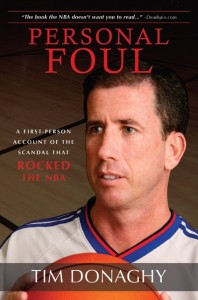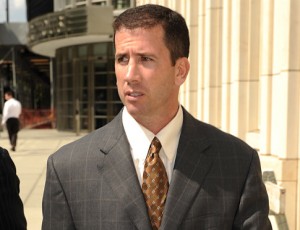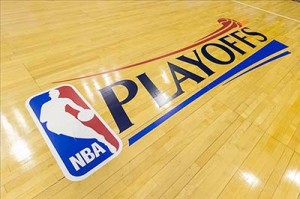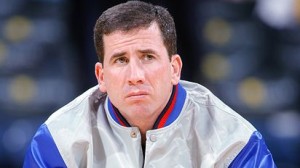You remember Tim Donaghy?
I had a very in-depth exclusive with him in 2011. We re-run the highlights of that exclusive every year in four pieces during NBA Finals time. The NBA Finals are of course synonymous with MJ, Mr. June, Michael Jordan, because no one has dominated it quite like him. For the best Michael Jordan rookie cards check out Gold Card Auctions, as they have a wide array.
For both the NBA conspiracy theorists and those who think the NBA conspiracy theorists are full of crap, this interview of Tim Donaghy is the post for you. Like Jordan, Donaghy has been the focal point of many conspiracy theories.
You may wonder what he’s been up to since his release from prison two years ago. Well he did some fantastic work on Deadspin during a few recent NBA Finals series. He pointed out numerous blown calls for each game, quarter-by-quarter.
I would just like to add that the views expressed by Mr. Tim Donaghy are strictly his own, not mine or any other individual affiliated with the website. I’m not saying he’s right or wrong, and it’s up to you to decide if you think he’s telling the truth or not.
Paul M.Banks: I’ve seen Phoenix Suns fans blame you individually for “stealing away” their 2007 NBA title and giving it to the San Antonio Spurs.
Tim Donaghy: I write in the book that there’s no doubt I feel the Phoenix Suns were the best team in in the league in 2007. And that whole series was officiated poorly, and I give the reasons in the book as to why I feel it was officiated poorly.
And one of the reasons is that Tommy Nunez was the supervisor of officials in that series. He had a dislike for the (Suns) owner Robert Sarver, and he enjoyed the lifestyle in San Antonio, and liked to get back in the next round of the playoffs and continue to go to San Antonio. So it was a situation that he was steering the series to San Antonio in tape sessions.
PMB: That series, dubbed the “real 2007 NBA Finals” by many league experts, seems to be the one that has received the most scrutiny among games you have officiated.
Tim Donaghy: People don’t realize that at that time we weren’t even betting any more because the guy who was involved in the scheme ended up going into rehab, so we were done betting at that time for about a month. So that was just a poorly officiated series from game one all the way until the last game.
PMB: You’ve made some controversial claims about how the NBA allegedly tries to extend the length of a playoff series in order to add revenue, and how that process usually entails favoring the big market team and the high profile players. How is this done?
Is it a set of unwritten rules, some casual unorganized meetings? Or are standard, formal practices?
Tim Donaghy: There’s unwritten rules and basically it’s done through tape sessions. During the playoffs, they put the referees in hotel rooms and show them plays from previous games, and it could be 10 or 15 plays that they go over that they want called differently, or plays not called that they do want called.
And it’s a situation that always go against the team that’s down in the series, and it programs and trains the referees to look for certain things and to put a team like Sacramento in 2003, who had a clear disadvantage; and put the Lakers at an advantage.
PMB: And how long has this practice been in place?
Tim Donaghy: Ever since I can remember, and I was hired in 1994.
PMB: So these practices are just kind of out-in-the-open, the league makes no attempt to cover it up?
Tim Donaghy: I don’t think they do cover them up- that’s why see you an enormous number of questionable calls in games the last 10 or 15 years. So you see a situation like that famous 2003 game 6 in L.A. when L.A. went on to force a game 7 and go to the NBA Finals.
And even though there was a lot of questionable calls in that game, they came out and said three referees did a terrible job and it was a horribly refereed game, but yet all three of those referees moved on to the Finals. If they did such a poor job, why didn’t their year end right then and there?
PMB: Yes, that is the quite possibly the most suspect playoff game that I can ever remember. What about “star calls?”
Tim Donaghy: There’s always been a double standard in the league, there is still a double standard in the league. Lebron James with some pivotal plays scoring a pivotal basket in a playoff game with a minute to go where he clearly traveled, and they let it go.
Unfortunately, it still exists and the rule book clearly states you don’t referee personalities, and yet every referee in that league referees personalities. They referee the name on the back of the jersey and that’s all based upon the star status and how many jerseys and sneakers that player sells.
PMB: Not many people will disagree with that, so where’s the paper trail? Only in the tape sessions?
Tim Donaghy: Never a paper trail, it’s always through meetings in hotel rooms and tape sessions. It’s done a lot, there were times I would walk out of a room prior to a playoff game, and I would look at the other referees and say “holy shit, they want Dallas to win tonight, or they want L.A. to win tonight.” It was very clear to the referees what the message was.
PMB: Interesting. When it comes down to individual star power versus big market teams, who wins? And along the lines of big stars getting favorable calls, does this only happen when the player has established himself? Or is it part of the process in “making” a star player?
Tim Donaghy: The biggest individual brand names, I had a conversation with a guy who’s involved with tv networks and he basically told me this year they needed Miami to advance so badly because Miami and Dallas would bring so much better ratings than Chicago and Dallas. Nobody on the west coast would watch if it was Chicago and Dallas because Lebron James would bring global attention versus somebody like Derrick Rose who wouldn’t.
Paul M. Banks is the Founding Editor of The Sports Bank. He’s also the author of “Transatlantic Passage: How the English Premier League Redefined Soccer in America,” and “No, I Can’t Get You Free Tickets: Lessons Learned From a Life in the Sports Media Industry.”
He currently contributes to USA Today’s NFL Wires Network. His past bylines include the New York Daily News, Sports Illustrated and the Chicago Tribune. His work has been featured in numerous outlets, including the Wall Street Journal, Forbes, the Washington Post and ESPN. You can follow him on Linked In and Twitter




